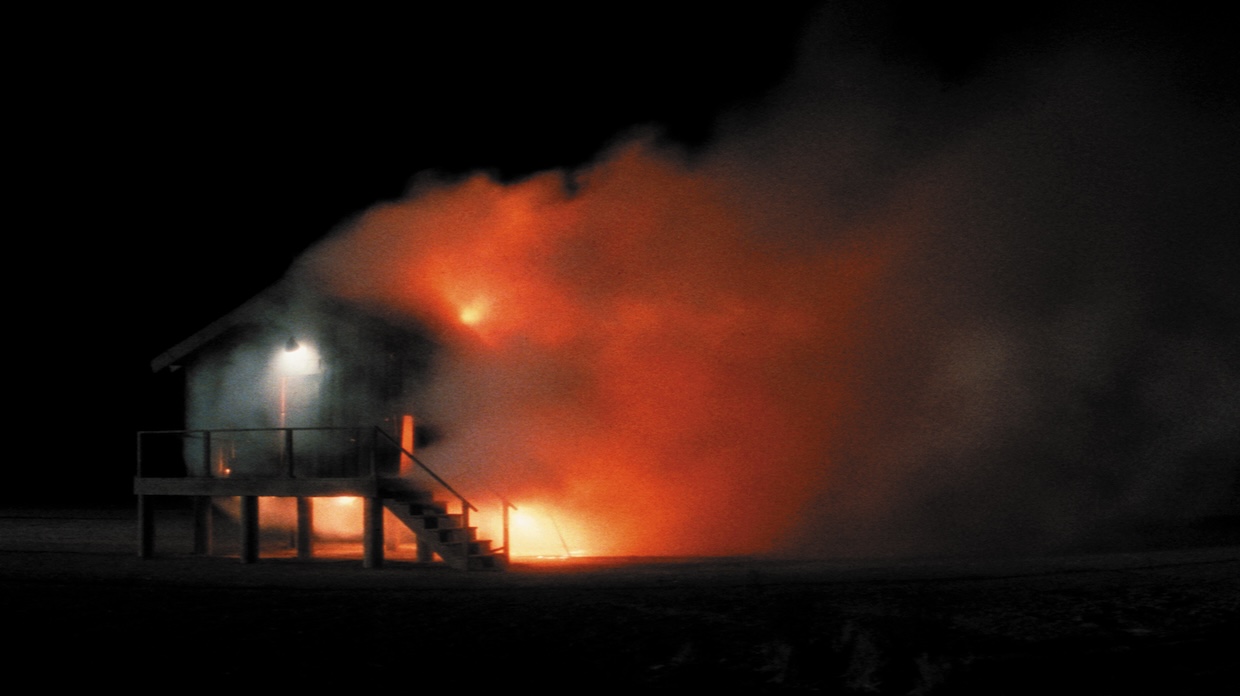 Back to selection
Back to selection
Passing Through the Black Lodge: David Lynch and Native Culture
 Lost Highway (courtesy of the Criterion Collection)
Lost Highway (courtesy of the Criterion Collection) There’s an episode in David Lynch’s memoir Room to Dream that I think of often, from his cross-country journey from Philadelphia to Los Angeles to begin his time as a student at the American Film Institute, where he would go on to create Eraserhead. At the end of the drive’s second day, David, his brother John and future collaborator Jack Fisk pulled over to the side of the road in the New Mexican desert:
It was a moonless night and we went down into these bushes to sleep. It was real quiet, then suddenly there was a whooshing sound and we saw a horse tied to one of the bushes. When we woke up the next morning there were Indians in pickup trucks driving in circles around us. We were on an Indian reservation and they probably wondered why the hell we were on their property, and I don’t blame them. We didn’t know we were on a reservation.
Beyond the, dare I say, Lynchian nature of that situation, I’ve always been struck by his admission: “I don’t blame them.”
Shortly after Lynch’s passing, I was reflecting with a friend who is also Native American and works in the industry about how the director had long held a place of admiration within a subsect of pop culture- and cinephilic-minded Indigenous audiences. A simultaneous love and fear of America are woven throughout Lynch’s work, a reverence for its landscapes and an acknowledgment of a history of darkness that haunts them. It’s a reality not far from many Indigenous communities, and one that isn’t impossible to imagine equally in the proximity of an Eagle Scout from Missoula who spent the halcyon days of his youth in the Pacific Northwest of the 1950s. Rather than loudly waving a flag of hollow allyship or white saviorism, Lynch’s vision of America always just felt like more of a sly nod to Indigenous folks in the know: He saw it, he got it and it horrified him. Every soul must pass through the Black Lodge on the journey to perfection, mustn’t they?
Among many Native traditional stories, you’d be hard-pressed to find narratives bound by hard logic or one where dreams, trickster characters or doppelgängers are not prominent features. I think this was why so much of Lynch’s work just fit hand-in-glove for some of us. While many viewers pore over Twin Peaks and its symbolism as though they are a combination to be cracked, many of the show’s Indigenous devotees pick up on a separate signal entirely. It’s less a code and more of a perceived sentiment transmitted through the presence of Deputy Hawk, bits of history divulged about the region’s tribes, the garish Native Americana and scenes of nature simultaneously holding immense beauty and unthinkable violence. When I think of a story from my own tribe about a woman who entered another world and was forced to marry the sun and carry its child, I think of Eraserhead’s Harry Spencer. In Blue Velvet’s Frank Booth, I see the most depraved version of Sapoul, a cannibal that captured the hero Saynday. There’s also the story of the sun’s child, a boy that physically and consciously splits himself into twins, which isn’t a far jump to Betty/Diane Selwyn in Mulholland Drive. I don’t think this was Lynch mimicking or appropriating our culture; I just think he was on a similar wavelength, and we were all the more fortunate to be primed for his narrative style.
The morning that Lynch’s passing was announced, my mom called to ask if I heard the news (I hadn’t yet), and my first thought went to when she rented The Elephant Man for me when I was at home sick one day as a kid. It was my first time watching a David Lynch film, an affecting experience that I was probably too young to fully appreciate at the time, but a formative step. In terms of giants of American cinema within my lifetime, Lynch dying has been the one that’s hit me the hardest. He had the perspective to realize where he was, who he was and to say: “I don’t blame them.”
